Since its establishment in 1974, the Consumer Council has continuously evolved with the times and has been adapting to societal changes in the consumption environment and behaviour. From wet markets to online shopping, and from printed reports to the Oil Price Watch mobile app, the Council has resolutely strived for improvement in sharing information on all aspects of daily life through different ways, witnessing historical changes while staying true to its mission in protecting consumer rights.
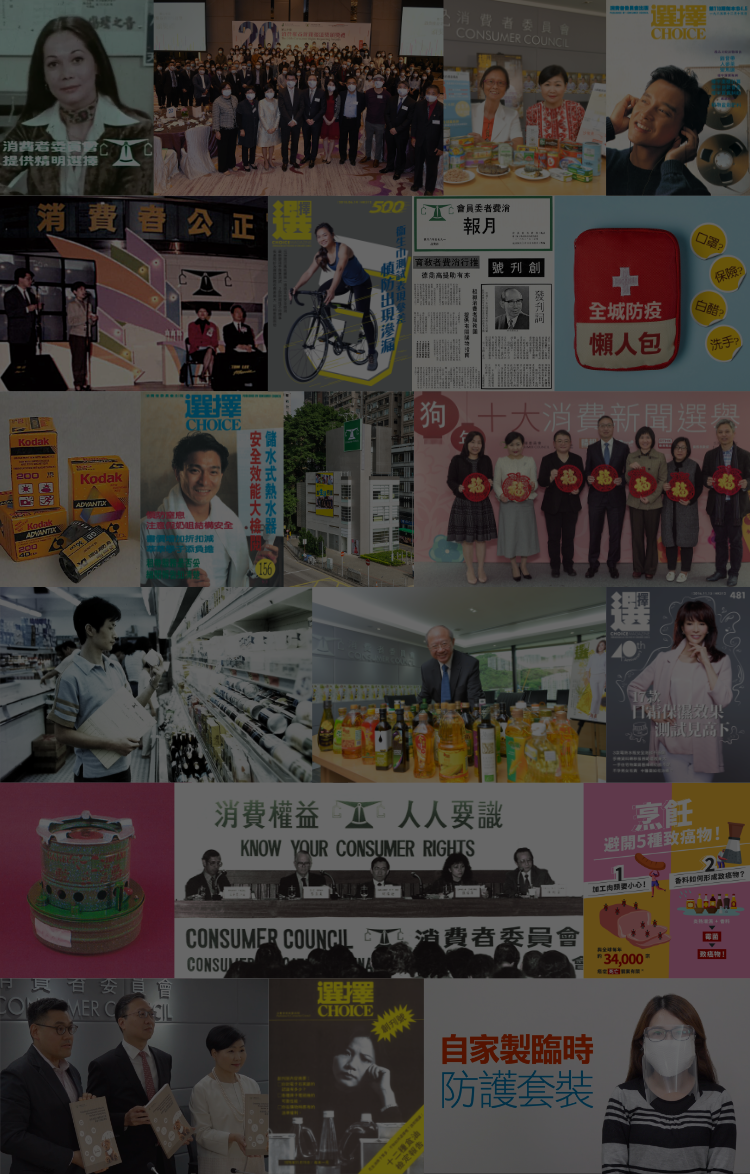






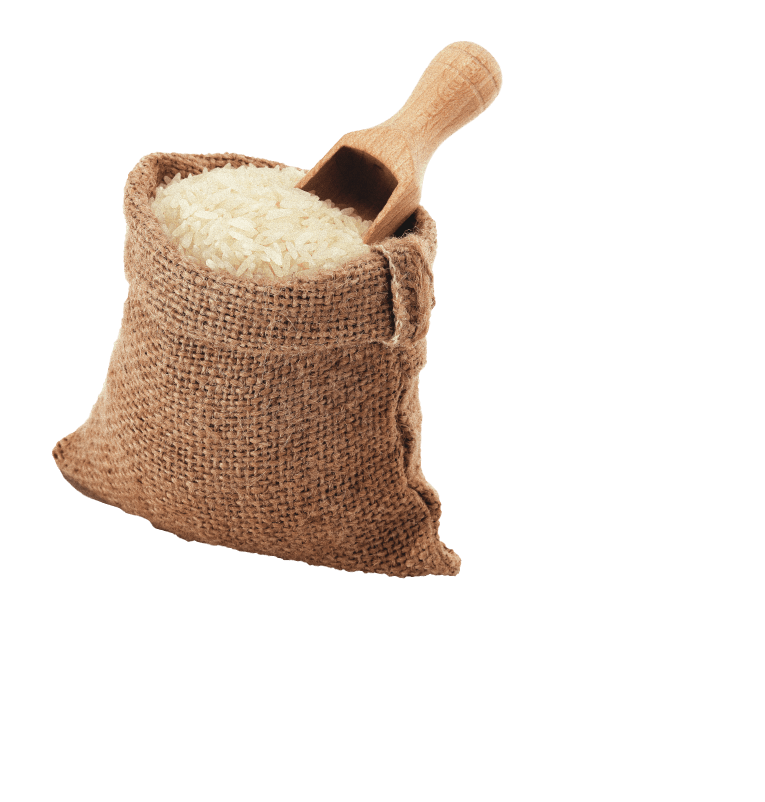

1970s
In the 1970s, the global oil crisis led to a high inflation. As a result, the prices of essential daily commodities soared, yet there was wide disparity in their qualities. Under these circumstances, the Council was established in April 1974 to monitor the quality of products and services on the market to protect consumer rights.
1974






Establishment of the Consumer Council
The Consumer Council was founded in 1974. The founding Chairman was the Hon. Sir Y.K. Kan and the first Executive Director was Ms Ophelia Cheung, JP.
Daily Radio Broadcast of Retail Prices of Major Foodstuffs
The "Daily Bulletin of Retail Prices of Major Foodstuffs" was broadcast every morning on the radio, offering price comparison for market shoppers.
1975






Launch of Consumers Monthly Newsletter
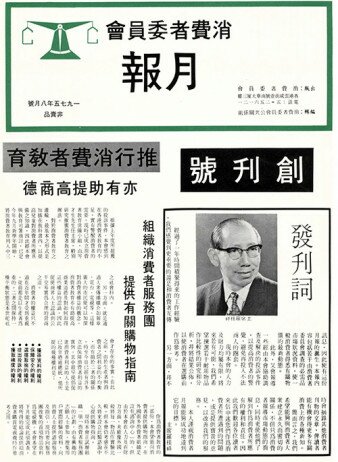
The forerunner of CHOICE magazine – Consumers Monthly Newsletter was launched with a print run of 30,000 copies for free distribution.
1976






Opening of Consumer Advice Centres
The first 2 Consumer Advice Centres were opened in the District Offices in Wan Chai and Sham Shui Po, the first of its kind in Asia.
Debut of CHOICE Magazine
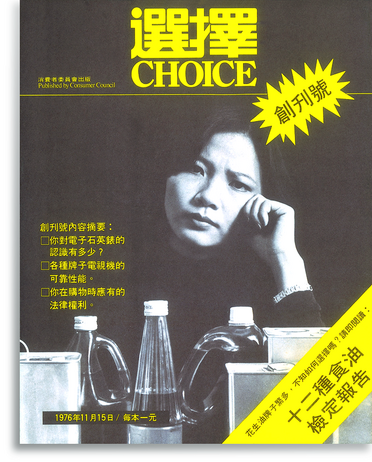
CHOICE Magazine debuted at a cover price of HK$1 and featured cooking oil as the first product test.
1977 - 1979






Becoming a Member of IOCU
The Council became a member of the International Organisation of Consumers Unions (IOCU) (now known as Consumers International), striving for the betterment of consumer rights.
The First Residential Property Transaction Study Report
A number of study reports were published, including the first report on residential property transactions, installment purchases (hire purchase) in Hong Kong, and the truncation of films by film distributors.
Becoming a Statutory Body
The Consumer Council Ordinance was formally enacted, incorporating the Council as a statutory body.
Development of Consumer Education Programmes
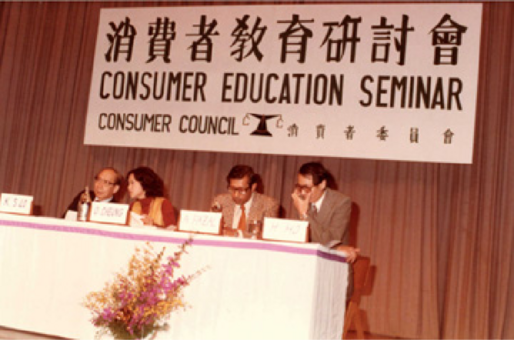
In collaboration with the Education Department, a consumer education teaching kit was created and widely adopted by schools. In addition, a series of seminars were held to directly promote consumer rights to the public.
First International Consumer Education Seminar
Organised its first Consumer Education Seminar in partnership with IOCU on the theme of "The Law and the Consumer" with attendance of delegates from over 20 countries and regions.

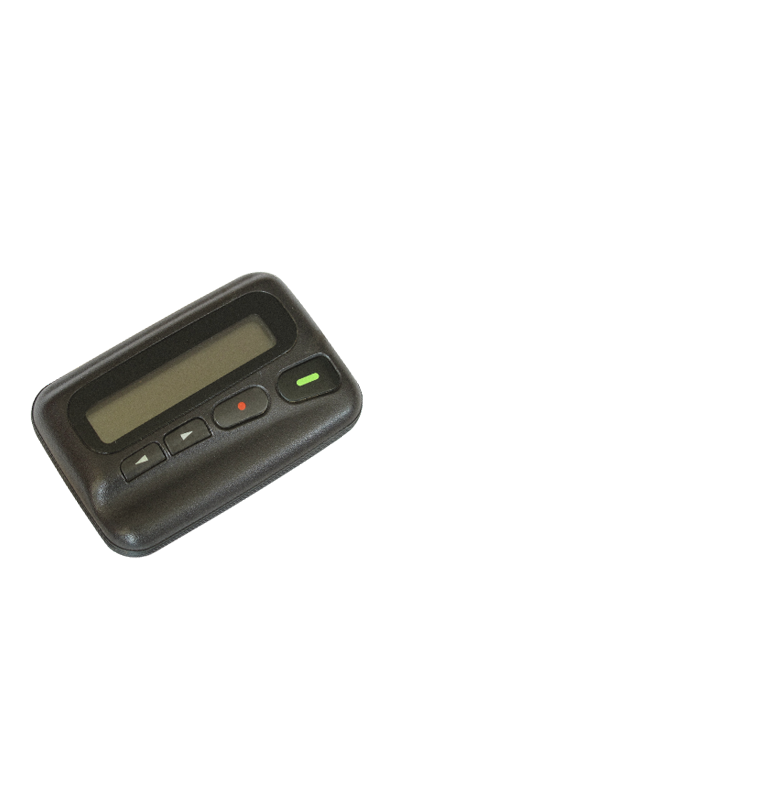
1980s
The 80s saw the rise of the Hong Kong economy as it went through the transition gradually from manufacturing to service industries. In the meantime, the heightened consumer awareness had made consumers more inclined to pursue service quality than merely concerned about the safety and price of the products. Riding on the opportunity in handling complaints arising from the widespread closure of various industries such as travel agencies, the Council had made various suggestions that laid a firm foundation for the legislations of a number of consumer protection laws.
1980 - 1985






Tobacco Control Legislations
Anti-smoking legislation banning smoking in public area was enacted in November 1981. The Council undertook to publish at regular intervals the results of the test on the tar and nicotine contents of cigarettes conducted by the Government Chemist.
Name and Reprimand Traders for Malpractices
The Council publicly named and reprimanded traders for malpractices and a total of 34 shops were named in the 80s.
Addressing Safety Issues of Domestic Gas and Electrical Appliances
After rounds of consultation with the Council regarding safety issues of domestic gas and electric appliances, the Government amended the Electricity Supply Ordinance and Regulations in 1984, authorising Government departments to establish safety standards for regulating electrical appliances.
Implementation of the Gold and Gold Alloy Marking Order
The Trade Descriptions (Marking) (Gold and Gold Alloy) Order was enacted and implemented by the Government, mandating that every article made of gold for sale shall bear a mark indicating its gold purity. A Council representative took part in the Advisory Committee during the drafting stage of the legislation and provided constructive recommendations.
Regulating Money Changer Commissions
In view of the surge in complaints against money changers for charging commissions under different guises, legislative control for the regulation of the trade was brought in by the Government in response to the Council's recommendations.
First International Consumer Rights Campaign
The Council launched its first large-scale consumer right advertising campaign – "World Consumer Rights Day" on 15 March 1984.
Major Revamp of CHOICE Magazine
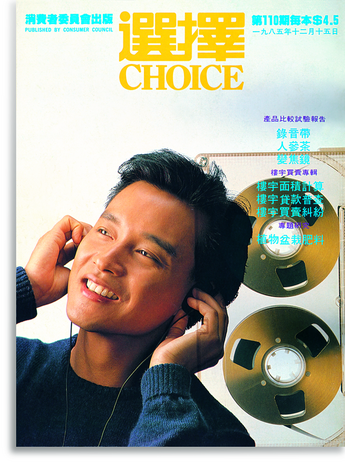
From issue 110, CHOICE underwent a major revamp involving a brand new look in content, layout, design as well as featuring celebrities on the cover. Superstar Leslie Cheung debuted as the first ever cover star for this issue with cassette tapes as the focus test product.
Traders Reprimanded for Malpractices
The Council publicly named and reprimanded 11 traders in 1985, including second-hand car dealers, electric appliance stores, tourist camera stores and moving companies, for their unscrupulous trade practices. The action served as a formal warning for the traders as well as an alert for the public to raise awareness to such unscrupulous trade practices.
Implementation of Key Consumer Protection Legislations
A number of consumer protection legislations long-advocated by the Council came into effect, including the Trade Descriptions Ordinance and the Travel Agents Ordinance.
Second Chief Executive On Board
Mrs. Pamela Chan, BBS, JP took the helm as the 2nd Chief Executive of the Council on 1 May 1985.
1986 - 1989






Passage of Food and Drugs Regulation
The Food and Drugs (Composition and Labelling) (Amendment) Regulation was passed in 1986 to enhance consumer protection.
Reforming Redress Measures
Triggered by the close-down of a number of major travel agencies between 1986 to 87, the authorities accepted the Council’s proposal of redress measures to safeguard consumer interests and amended the Travel Agents Ordinance.
The New Weights and Measures Ordinance
The new Weights and Measures Ordinance came into operation to regulate trade transactions regarding goods supplied based on weights or measures.
Recording Breaking Sales of CHOICE
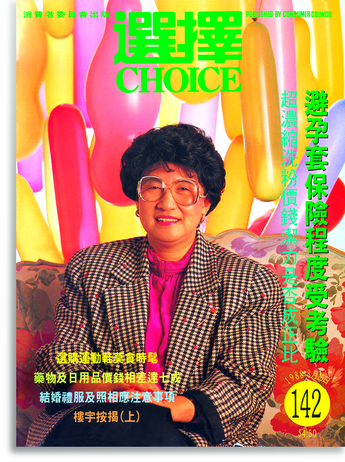
CHOICE published its first test report on condoms in the August 1988 issue, which saw an unsurpassed historical high circulation of 73,000 copies.
Standardised Measurement Method of Saleable Area
In 1989, the Council and 9 organisations jointly proposed the standardised method for measuring saleable area of residential properties to be adopted in sales brochures and sales and purchase agreements, to tackle the problems in residential property transactions.
Promoting Consumers' Right to be Informed

A publicity video was launched focusing on outbound packaged tour travel with the slogan – "Consumers have the right to be informed. The more you ask, the smarter you are".


1990s
In the economic heyday of the 90s, Hong Kong cemented its status as Asia's financial centre but at the same time it entailed a booming property market and the concomitant rampant property speculation with property prices hitting the historical peak in 1997, yet the sales practices and contractual regulations had attracted a lot of criticisms. The Council conducted research and drafted a number of important consumer protection policies and legislations, laying a firm foundation for advocating fair competition in the market. At the same time, the Consumer Legal Action Fund (CLAF) was established to assist aggrieved consumers to seek redress through legal actions.
1990 - 1993






The Control of Exemption Clauses Ordinance Came into Effect
The Control of Exemption Clauses Ordinance came into effect in December 1990. Traders could no longer evade liability through unreasonable exemption contract clauses.
Publicity Campaign on Consumer Redress
Launched an extensive publicity campaign to educate the public on their right to redress with the slogan "Your consumer rights are in your hands. Speak up to fight for your rights!"
Extension of the Council's Statutory Functions
The Consumer Council Ordinance was amended to further extend the Council's statutory functions to include real estate property transactions and rentals, offering even greater consumer protection to the public.
Hosting the 13th IOCU World Congress
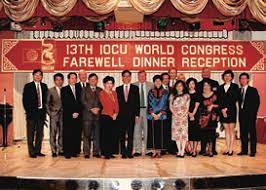
The Council hosted the 13th IOCU World Congress in July 1991, attended by about 500 delegates from 60 countries and regions.
Paving the Way for the Competition Ordinance
In response to then Governor Chris Patten's emphasis on defending a free market in his policy address in 1992, the Council set up a working group which paved the way for the subsequent legislation of the Competition Ordinance.
Promulgation of the Toys and Children's Products Safety Ordinance
The Toys and Children's Products Safety Ordinance was promulgated in July 1992, marking a new milestone for ensuring the safety of children's products.
1994 - 1998






The First Competition Policy Study Report
The Council published its first competition policy study report in February 1994, calling for the abolition of the Interest Rate Agreement by phases. The recommendation was accepted by the Government.
Publication of Competition Sectoral Study Reports
3 competition sectoral study reports were published, including the proposal of opening up the Towngas pipeline distribution network, and the establishment of a policy bureau led by a Principal Official to coordinate the broadcasting, telecoms and information technology policies. The recommendations were well received by the Government.
Passage of Consumer Protection Ordinances
The legislations of the Supply of Services (Implied Terms) Ordinance, the Unconscionable Contracts Ordinance and the Consumer Goods Safety Ordinance were passed in October 1994, along with the Sales of Goods (Amendment) Ordinance.
Setting Up the Consumer Legal Action Fund
In December 1994, the Consumer Legal Action Fund (CLAF) was established with an initial grant of HK$10 million from the Government. The Council was appointed as the Trustee of the Fund to provide legal assistance to cases involving significant consumer interest.
Promulgation of the Unconscionable Contracts Ordinance
In 1995, the Unconscionable Contracts Ordinance came into effect, empowering courts to void certain contracts that were found to be unconscionable.
Promulgation of the Consumer Goods Safety Ordinance
The Consumer Goods Safety Ordinance was enacted to impose control on the safety of consumer goods.
Publication of "Competition Policy" Study Report
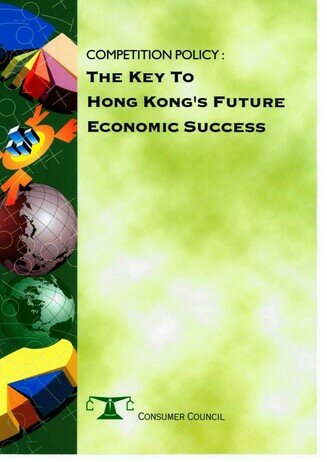
The Council published a study report titled "Competition Policy: the Key to Hong Kong’s Future Economic Success", calling for a comprehensive competition policy to be backed up by related legislation.
Establishment of the Estate Agents Authority
The Council's recommendations on the licensing of estate agents was well received by the Government. The Estate Agents Authority (EAA) was formally established in 1997 with Council's representatives appointed as members of its Committees and a number of its Working Groups.
Enactment of the Electrical Products (Safety) Regulation
In 1997, the Electrical Products (Safety) Regulation came into effect, mandating all electrical products to comply with the essential and specified safety requirements to avoid safety risks.
1999






Co-organising the First Consumer Culture Study Award
The Council started co-organising the Consumer Culture Study Award with the Education Bureau (EDB) from 1999.
Highly Acclaimed Publicity Slogan
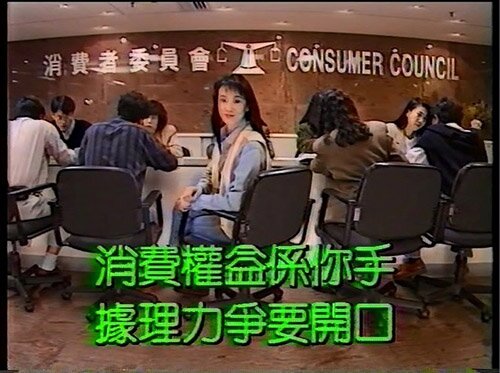
In the 90s, the Council's publicity slogan – "Your consumer rights are in your hands. Speak up to fight for your rights!" and the advertisement with the casting of Dodo Cheng and Ng Man-tat had gained wide public recognition.
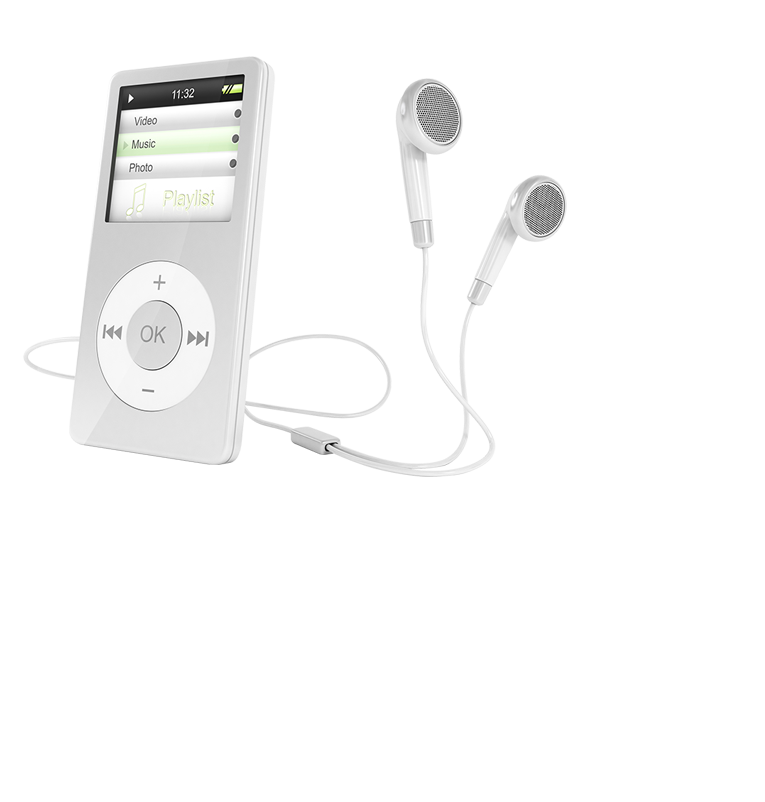
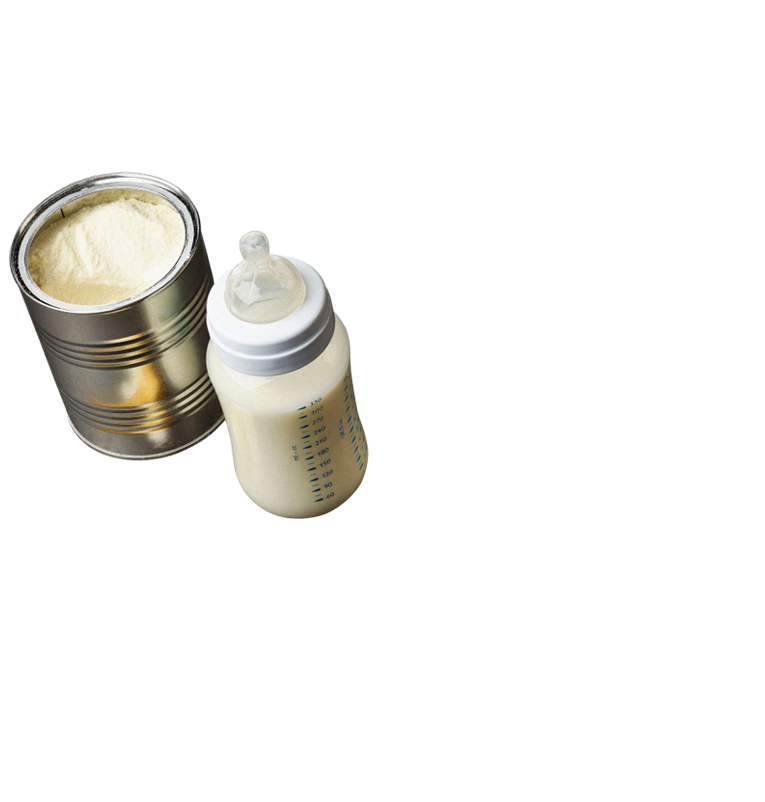
2000s
In the new millennium, Hong Kong was badly hit by both the SARS epidemic and the financial tsunami that adversely affected the economy and the people's livelihood, causing people become more concerned about the prices and qualities of consumer products. The Government introduced the Independent Visitor Scheme after the SARS epidemic to boost tourism and help stabilize the economy, while the Council also advocated amendments to various legislations and initiated new services, and at the same time offered assistance via CLAF to consumers affected by the Lehman Brothers' bankruptcy and the One Beacon Hill incident.
2001 - 2002






Recommendations to Strengthen Legislation on Consumer Protection
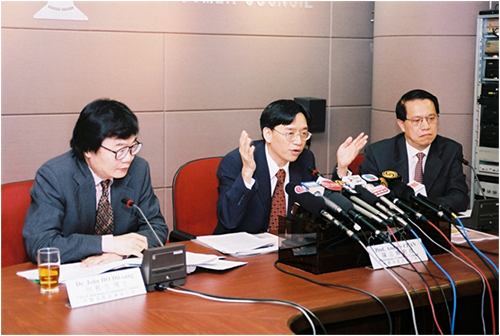
In 2001, the Council submitted to the Government its study report with recommendations for consumer protection legislations to curb the spread of deceptive, misleading and unfair trade practices in consumer transactions. This involved amendments to a number of existing legislations including the Small Claims Tribunal Ordinance, Trade Descriptions Ordinance, Summary Offences Ordinance and Unconscionable Contracts Ordinance.
Survey on the Abolishment of the Interest Rate Agreement
In July, the Council conducted a survey regarding the abolishment of the Interest Rate Agreement in banking. Results confirmed that substitute products and deposit account services were offered by banks to cater for the needs of different clients.
Opening of the Resource Centre in Tsim Sha Tsui
In October, the Consumer Council Resource Centre was inaugurated in Tsim Sha Tsui, Kowloon.
Hosting UNCTAD's Asian Regional Seminar
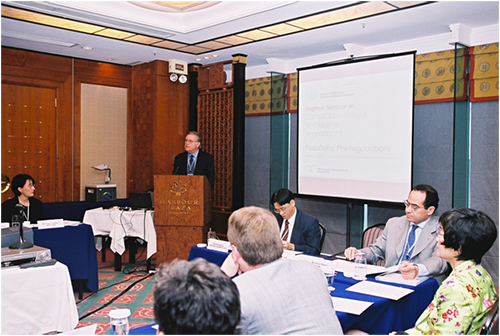
In April 2002, the Council hosted the United Nations Conference on Trade and Development's (UNCTAD) Asian Regional Seminar on "Competition Policy and Multilateral Negotiations: the Post-Doha Mandate" in Hong Kong. The participants included delegates from 15 countries and 5 regions as well as representatives of international organisations.
Bid-rigging Prevention Guidelines
In mid-2002, an advisory guideline was disseminated to recommend procedures for tendering parties to identify and prevent bid-rigging.
2003 - 2005






Testing Anti-epidemic Supplies During SARS
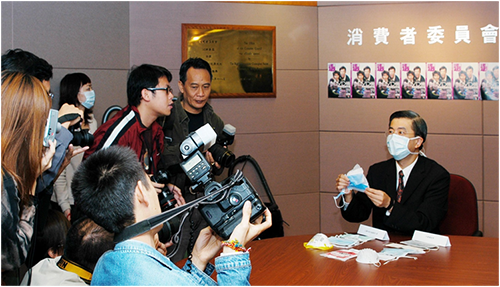
To safeguard the health of citizens during SARS outbreak in 2003, the Council conducted a number of research and tests on surgical face masks, sanitation and disinfectant products, and other items claiming protective efficacy against SARS.
Retailing Sector Competition Study Report
The "Wet Markets vs Supermarkets: Competition in the Foodstuffs and Household Necessities Retailing Sector" study report was published in July.
Debut of eCHOICE
On 6 January 2004, eCHOICE – the online version of CHOICE Magazine – was officially launched.
Beauty Industry Code of Practice Study Group Formed
A Working Group for the Beauty Industry Code of Practice was formed in July, with a representative from the Council as the convener and 11 industry representatives as members.
Co-organising the First ICRT Asian Region Conference and Training Workshop
In November, the Council co-organised the First International Consumer Research and Testing (ICRT) Asian Region Conference and Training Workshop in Hong Kong.
Collaboration in Consumer Redress with Beijing, Shanghai and Macau
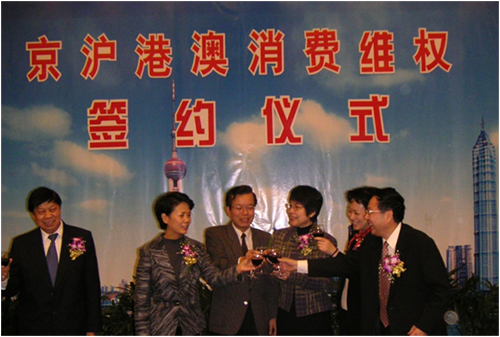
In December, Memoranda of Understanding for co-operation of consumers' rights and interests were signed with consumer associations in Beijing, Shanghai and Macau.
Assisting One Beacon Hill Owners in Compensation Claims
In 2005, the Council's Consumer Legal Action Fund assisted a group of buyers of One Beacon Hill. After 8 years of legal proceedings, a settlement was finally reached in 2014, and the affected flat owners were compensated for the delay in property completion.
2006 - 2007






New Chief Executive On Board
In March 2007, the Council's Chief Executive, Mrs. Pamela Chan, BBS, JP retired. She was succeeded by Ms. Connie Lau on 1 April of the same year.
PAAG Breast Augmentation Debacle
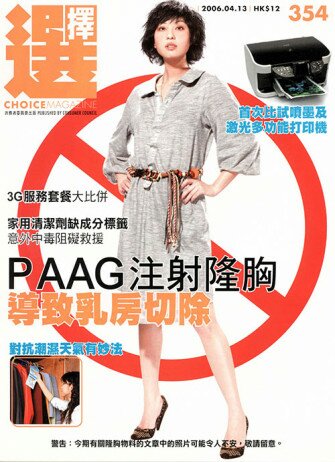
The April issue of CHOICE reported cases of women suffering from serious complications after using PAAG for breast augmentation. This led to a ban on PAAG injections by the Mainland authorities.
Launch of the New Shopsmart Website
A new website Shopsmart catering for Mainland tourists was launched on 21 September 2007.
2008






A Report on Fairness in the Marketplace
2008 saw a rising number of mainland tourists’ complaints against undesirable trade practices. The Council published the "Fairness in the Marketplace for Consumers and Business" report and submitted to the Government for consideration. This led to the amendment of the Trade Descriptions Ordinance to cover services and prohibit unfair trade practices.
A Study on Live Pig Pricing
The report "A Study on Live Pig Pricing" was published in August to investigate the features of the fresh pork marketplace structure, and to observe whether anti-competitive conduct may ensue.
Standardised Definition of Saleable Area
A standardised definition of "Saleable Area" came into effect in October and was applicable to the pre-sale consents of the new development projects, helping potential buyers gain more accurate information on the area of the property.
2009






Launch of the Auto-fuel Price Calculator
The Council had been very concerned about the fuel prices and launched an online Auto-fuel Price Calculator in February, helping consumers compare the auto-fuel prices of 5 local oil companies. A mobile version was subsequently rolled out in April.
Analysis of Infant Formula Pricing
The Council launched a number of new price watch initiatives from 2008, including foodstuffs, daily necessities, the daily wet market price survey, etc. In April 2009, the Council started conducting regular price surveys of infant formula across Hong Kong and released the information online to help consumers make informed choices.
The Lehman Brothers Lawsuit
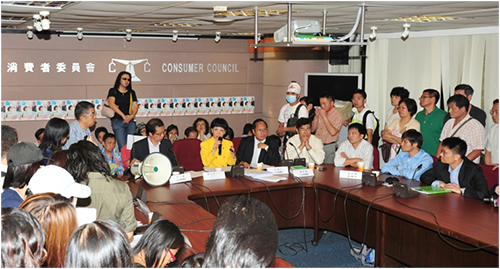
After receiving a large number of complaints related to the Lehman Brothers‘ bankruptcy in 2008, the Council has provided financial assistance to aggrieved consumers for taking legal action under the Consumer Legal Action Fund (CLAF) since 2009. After years of follow-up action by the Council, some consumers eventually succeeded in getting refund in 2014.
35th Anniversary Symposium
In July, in celebration of the Council's 35th Anniversary, a Symposium on "Promotion of Consumer Rights and Equity Culture" was held with over 200 participants in attendance. On the day, 8 former Chairpersons of the Council attended a Round-Table Discussion Session on the topic of "The Way Forward for the Hong Kong Consumer Council: Wisdom from the Past, Insight for the Future". A roving exhibition was held from August to October.
Launch of the Monthly Wet Market Food Price Index
The "Monthly Wet Market Food Price Index" was launched in September to monitor the price level of 26 food items in 44 wet markets across the 18 districts of Hong Kong. Price changes of 4 categories of foodstuffs – meat, fish, vegetable and fruit – were evaluated on a monthly basis.
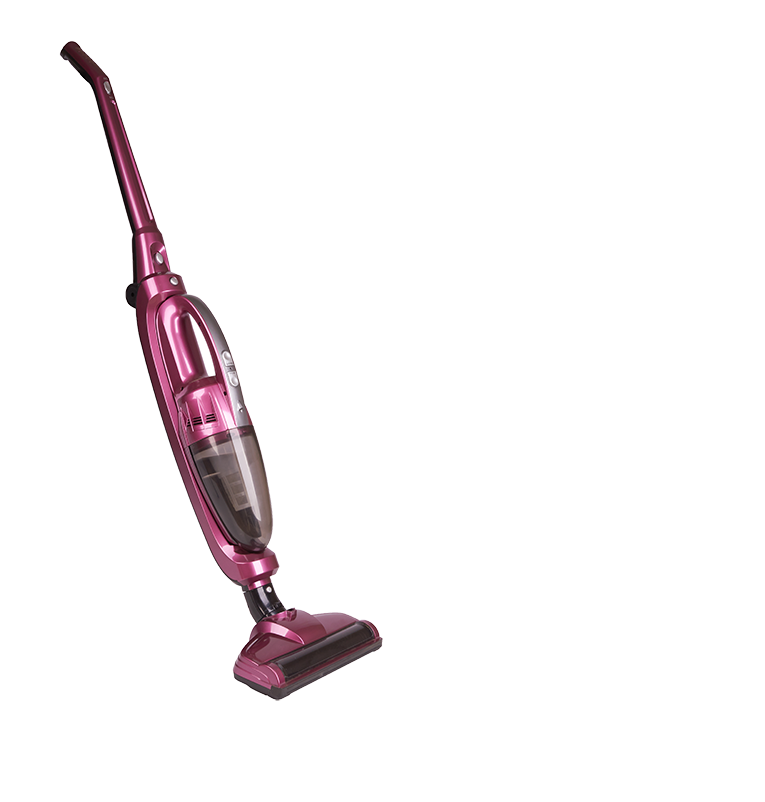

2010s
Online shopping boomed as technology advanced in the 2010's. Since then, consumers have become increasingly aware of personal data privacy and sustainable consumption. Keeping abreast of the times, the Council had safeguarded the long-term interests of consumers with profound vision by disseminating information to consumers through various channels. Over 20 study reports were published covering topics such as the MPF Employee Choice Arrangement (ECA), first-hand residential property sales; and a number of test reports on products such as honey and anti-wrinkle cream were reprinted due to popular demand. Also, several consumer rights legislations were passed in the 2010's, including the Competition Ordinance and the Residential Properties (First-hand Sales) Ordinance, which were the fruits of the Council's continued effort since the 1980's.
2010






Organising the First Consumer Culture Study Award in Mainland China
The Council teamed up with Shantou University to organise the first Consumer Culture Study Award in the Mainland China, to promote relevant issues, concepts and skills training in conducting consumer culture studies. The “Third Age Persons Consumer Culture Study Award" was also piloted in the same year, with the aim to enhance senior citizens' understanding and analysis of local consumer culture.
Publication of a Number of Study and Survey Reports
From 2010, the Council published a number of market study and survey reports, covering popular topics such as sales of first-hand residential properties, infant formula supply, auto-fuel pricing report, etc.
The New Nutrition Labelling Scheme
The new Nutrition Labelling Scheme came into effect in July 2010. In addition to surveys conducted from March to July, the Council also promoted and educated consumers on the new scheme in collaboration with the Centre for Food Safety.
Competition Bill Seminar for SMEs
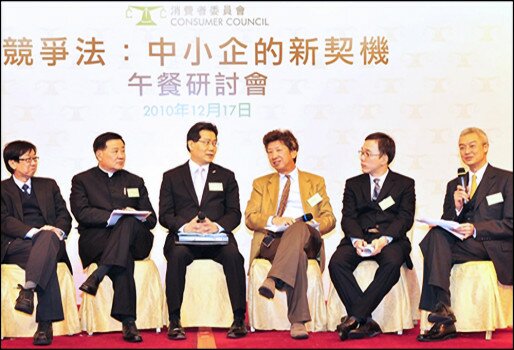
In December, a seminar on the proposed Competition Bill was organised specifically for small and medium enterprises to canvass their views and any issues they might have. Over 120 representatives from various trades and commerce and industrial organisations attended the seminar.
2011 - 2012






World Consumer Rights Day 2011
In March, coinciding with the theme of World Consumer Rights Day 2011 – "Consumers for Fair Financial Services", the Council conducted an online survey to collect consumers' opinions on banking services.
2011






Co-organising the 19th CI World Congress
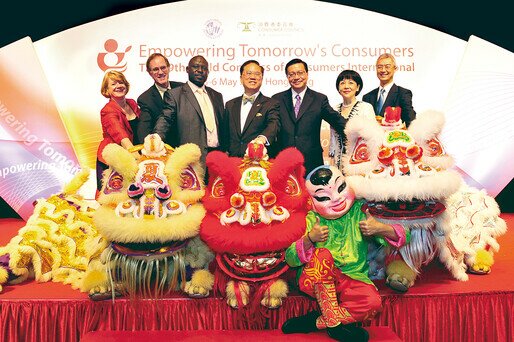
The Council co-organised the 19th Consumers International (CI) World Congress from 3 to 6 May, drawing a global assembly of some 700 delegates from over 60 countries, the highest attendance in the history of the Congress.
Commencement of the Pyramid Schemes Prohibition Ordinance
The Council proposed improvements on the Pyramid Schemes Prohibition Bill. The Ordinance was enacted in July 2011 and came into effect on 1 January 2012.
World Consumer Rights Day 2012
In response to the theme of World Consumer Rights Day 2012 – "Our Money, Our Rights", the March issue of CHOICE published a report reminding consumers to pay heed to fee and charges when using banking services to avoid unnecessary charges and disputes.
Website Enhanced with Barrier-Free Features
In collaboration with the Hong Kong Lutheran Social Service, the Council's website was enhanced to enable hearing-impaired consumers to access the Supermarket Price Watch and Auto-fuel Price Calculator through a 3G handset.
Naming of Unscrupulous Traders
3 traders were named and publicly reprimanded for unscrupulous sales tactics, namely Modern Digital, Sunshine City, and Q & A+ Health Spa.
Study Report on Unfair Terms in Standard Form Consumer Contract
In April, the study report "Unfair Terms in Standard Form Consumer Contract" was published, revealing the unfair terms existing in standard form consumer contracts.
Enactment of 3 Ordinances
The Competition Ordinance, Trade Descriptions (Unfair Trade Practices) (Amendment) Ordinance 2012 and the Residential Properties (First-hand Sales) Ordinance were passed by the Legislative Council, further enhancing the protection of consumer rights.
Reviewing Beauty Industry Practices
Following the tragic medical beauty incident in October, the Council actively participated in a steering group to review the related practices of the beauty industry and strongly urged the government to put in place an effective regulatory framework for medical beauty treatment as soon as possible to safeguard consumer safety.
Collaborative Efforts in Tests and Study Reports
The Council worked with International Consumer Research & Testing (ICRT) and the Occupational Safety and Health Council respectively to conduct tests on suitcases and swivel work chairs; The study report on the MPF Employee Choice Arrangement (ECA) published in CHOICE was well received and the issue had to be reprinted to meet the popular demand.
Inauguration of the Fourth Chief Executive
In November 2012, the Council's Chief Executive Ms Connie Lau, JP retired and was succeeded by Ms Gilly Wong.
Tackling Milk Powder Shortage
Rampant parallel trading activities resulted in shortage of infant formula supply in Hong Kong, leaving some brands severely out of stock. Pharmacies also took advantage of the situation to raise the price. While handling complaints on the acute inflation, the Council urged the industry to ensure a steady and sufficient local supply, and also released the result of a survey on the supply and price of infant formula in January 2014.
2013 - 2014






Awareness of Sustainable Consumption
A 3-year strategic plan was announced with sustainable consumption becoming an important focus in the future.
Publicity Campaign on the Amended Trade Descriptions Ordinance
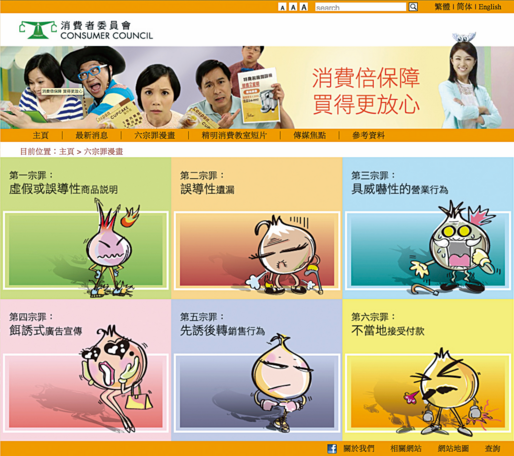
A multi-channel publicity educational campaign was launched to raise public awareness on their consumer rights under the newly amended Trade Descriptions Ordinance, as well as to promote the concept of "shopping smart".
Grocery Market Study Report
A "Grocery Market Study" report was published in December to examine the competition situation in the Hong Kong foodstuffs and household necessities retail sector, as well as evaluating whether major supermarket chains have abused their market power.
Publicity Sanction of Unscrupulous Travel Club
The Council identified and named an unscrupulous travel club Carefree Travel (HK) Limited for its persistent failure in honouring its offer of free hotel accommodation, a tactic employed by the club to attract consumers to pay for membership.
First Cross-Strait Consumer Protection Symposium
In April, the Council and its counterpart in Macau organised the first "Cross-Strait Symposium on Consumer Protection".
Celebrating the 40th Anniversary with a Series of Events and Educational Programmes
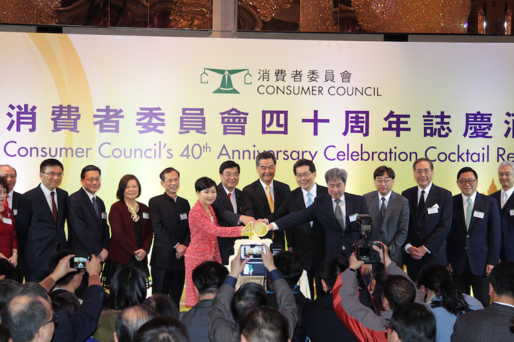
The 40th Anniversary cocktail reception was held in April. The then Chief Executive Mr. C.Y. Leung was the Guest of Honour of the event which was attended by nearly 500 distinguished guests, including government officials, business representatives, former Council Chairpersons and Chief Executives, and delegates of consumer bodies. A series of educational programmes were rolled out, including organising the 4 x 10 Comic Exhibition; sponsoring the consumer-related award "The Best Thematic Micro-film Award – Consumption is a matter of..." at the Hong Kong Mobile Film Festival;, and sponsoring the RTHK TV features Metropolitan Consumers, with an aim to explore various consumer protection issues with consumers of different generations.
Positive Response to the Council's Tests
CHOICE published test reports on anti-wrinkle face creams and honey that received very positive public response. First prints were sold out within days and the issues were reprinted to meet popular demand.
Breaking Subscription Record at the Hong Kong Book Fair
CHOICE Magazine was popularly received by readers at the Hong Kong Book Fair in July, breaking the on-site subscription record with a record-high of over 2,100 new subscribers.
Reprimanding Online Trade Malpractices
"Birth.hk", an online shop peddling infant products, became the first-ever online trader named by the Council for malpractices detrimental to consumer interests. The Council received a total of 91 consumer complaints involving HK$285,000 against the trader.
Study on the Sales of First-hand Residential Properties
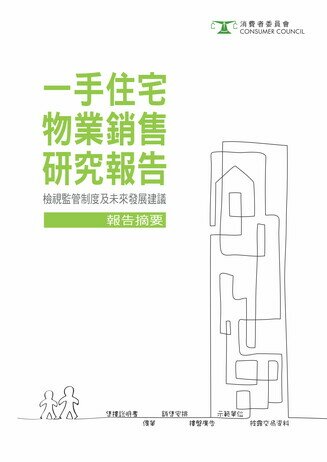
The Council published a "Study on the Sales of First-hand Residential Properties" in November which revealed that the sales process was still plagued with various problems despite the Residential Properties (First-hand Sales) Ordinance having become effective for one and a half years.
Proposing Reforms in the Hong Kong Electricity Market
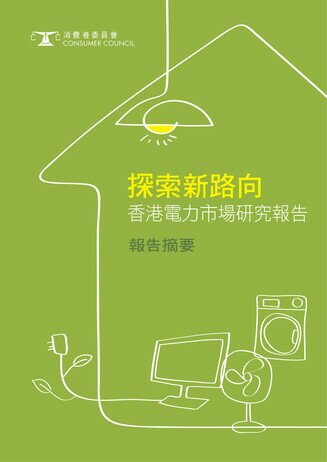
In December 2014, the Council published an in-depth study report "Search for New Directions – A Study of Hong Kong Electricity Market" , focusing on 3 principal issues: regulation of the Hong Kong electricity market, market liberalisation, and sustainability. A “gradual and progressive reform” was proposed by the Council in June 2015 in response to the "Public Consultation on the Future Development of the Electricity Market". Furthermore, the Council proposed the “Energy Efficiency Obligation” as an effective means to sponsor and encourage households and businesses to reduce energy consumption; and co-hosted the Competition in the Electricity Markets Discussion Forum with the Competition Commission in September, during which experts from Singapore, the European Union, and USA shared insights and experiences across a range of issues.
2015 - 2016






Study Report on Auto-fuel Price Monitoring Analysis
The Council published the "Auto-fuel Price Monitoring Analysis Report" in February 2015, recommending the Government and oil companies to increase the transparency by releasing more information, such as oil import costs, service station rental and operating costs. The "Diesel Price Calculator" mobile app was launched in the same month to help consumers make informed choices.
Introduction of The Code of Practices of the Laundry Industry
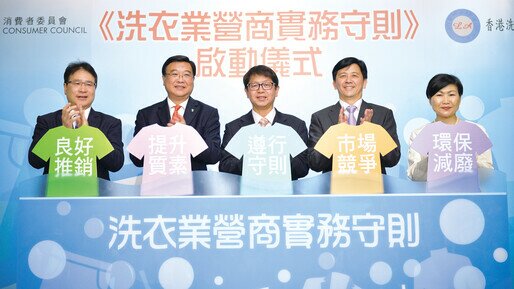
The Council introduced the first "Code of Practices of the Laundry Industry" in collaboration with the Laundry Association of Hong Kong in July, with the aim to enhance service quality and professionalism through establishing an effective self-regulatory mechanism within the industry.
Recommendations on Codes of Practice for Pharmacy Industry
The Council submitted recommendations on 2 draft codes, including the "Draft Code of Practice for Holder of Wholesale Poisons Licence" and the "Draft Code of Practice for Holder of Certificate of Registration as an Importer and Exporter of Pharmaceutical Products".
7 Pharmacies Named in Publicity Sanction
In light of an unscrupulous sales practice by a local pharmacy which enticed a Mainland Chinese tourist into paying HK$39,600 for 2 bottles of China Medical Oil, the Council urged reflection and self-regulation from the industry so as not to damage Hong Kong's reputation as "Shopping Paradise" for self-interest. In August, the Council named and reprimanded 7 drugstores for indulging in unscrupulous sales tactics targeting mainland tourists and harming consumer interests.
Advocating Phasing Out Meat and Poultry Treated with Antibiotics
In November, the World Health Organisation (WHO) launched the "World Antibiotic Resistance Awareness Week". The Council swiftly took action and reached out to local fast food chains, calling for a time-bound action plan on phasing out the use of meat and poultry treated with antibiotics for human consumption.
Implementation of the Competition Ordinance
The Competition Ordinance became effective on 14 December. The First Conduct Rule prohibits anti-competitive agreements, such as price-fixing and bid-rigging; the Second Conduct Rule prohibits businesses with a substantial degree of market power from abusing that power to harm competition .
The First Sustainable Consumption Report

In February 2016, the Council published its first sustainable consumption report titled "Sustainable Consumption for a Better Future – A Study on Consumer Behaviour and Business Reporting" and also organised a conference on this topic for exploring the opportunities and challenges faced while working towards sustainable consumption in Hong Kong.
World Consumer Rights Day 2016
In support of the theme of World Consumer Rights Day 2016 – "Antibiotics Off The Menu", the Council joined hands with 35 consumer organisations around the world to call on governments and the industry to tackle the problem of antibiotic resistance.
Fitness Centre Chain Reprimanded
In April, the Council named and publicly reprimanded the fitness centre chain California Fitness for deploying intimidating and misleading sales practices to pressurise consumers into purchasing membership and private lessons.
Celebrating the 40th Anniversary of CHOICE with New Facebook Page
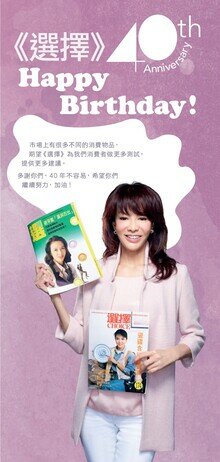
Striding into its 40th year, CHOICE Magazine has generated wide publicity and impact throughout the years which had also helped foster a number of consumer protection legislations. A dedicated Facebook page for CHOICE was also launched in July for a greater publicity coverage.
Study Report on Alternative Consumer Adjudicative Process
The study report titled "The Role of Consumer Arbitration in the Alternative Dispute Resolution Regime for Consumer Protection" was published in August, advocating for the establishment of a "Consumer Dispute Resolution Centre" to achieve triple wins in consumer dispute resolution in Hong Kong.
Study Report on Online Retail Protection
The report "Online Retail – A Study on Hong Kong Consumer Attitudes, Business Practices and Legal Protection" was published in November, looking into the prevalence of online shopping and providing recommendations for consumer protection while shopping online.
Study Report on Consumer Protection of Medical Beauty Services
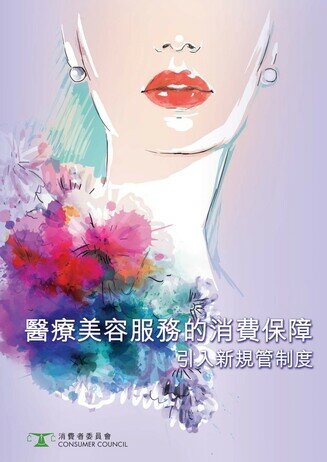
In December, the Council published the "Consumer Protection of Medical Beauty Services - A New Regulatory Regime" study report which analysed key issues of concern to consumers using medical beauty services. The report included recommendations that would enhance consumer protection and avoid risks and serious consequences to consumers' well-being arising from the malpractices of medical beauty services.
The First Test on Chicken Products
The December issue of CHOICE published its first-ever test on chicken products and revealed that antimicrobial resistant bacteria was found in over 60% of the samples.
2017 - 2018






Promoting Responsible Borrowing on Social Media

Addressing the issue of excessive borrowing by young consumers, the Council collaborated with the Financial Services and the Treasury Bureau for the first time to launch a social media educational campaign. The promotional videos garnered over 2.5 million total views.
Proposing Regulatory Framework for Medical Devices
In its submission to the Panel of Health Services of the Legislative Council, the Council expressed its support to the Government's proposed regulatory framework for medical devices, including the requirement of compulsory registration of medical devices, licensing of traders, reporting adverse incidents and regulating specific medical devices.
An In-depth Study of Credit Card Chargeback Mechanism and Legal Protection
Credit card is one of the most popular forms of payment in Hong Kong. As such, the Council conducted an in-depth study "Consumer Protection on Prepayment and Retailer Insolvency – Review of Chargeback and Beyond" to evaluate how the chargeback mechanism could be enhanced to better protect consumer prepayment in the event of retailer insolvency.
Collaboration in Consumer Redress with Korea
The Council signed a Memorandum of Understanding (MOU) with Korea Consumer Agency on 25 May with an aim to strengthen the effectiveness in dealing with rising cross-border consumer disputes. This was the first co-operative agreement the Council has signed with a consumer protection organisation abroad.
Debut TV Programme on Consumer Education
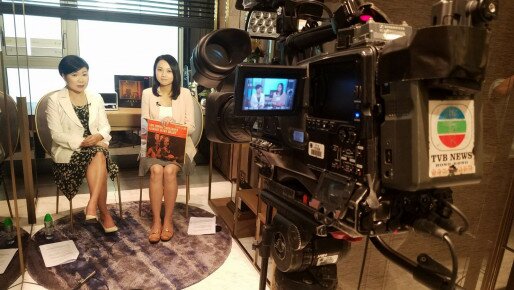
Partnered with a TV station for the first time in a series of mini TV segments titled "How to Choose" (點選宅), the Council provided practical information to help consumers make informed choices on a range of popular consumer products.
Introduction of the Code of Practice of the Jewellery Retail Industry
Jointly published the "Code of Practice of the Jewellery Retail Industry" with the Hong Kong Jewellers' & Goldsmiths' Association and the Kowloon Pearls, Precious Stones, Jade, Gold and Silver Ornament Merchants Association, setting out a clear and comprehensive service standard for the jewellery retail industry of Hong Kong.
Timeshare Marketing Company Named for Unscrupulous Malpractices
The timeshare marketing company Great Time Universal (HK) was publicly named and reprimanded in September for persistently engaging misleading and high-pressure sales techniques in the sales of vacation club memberships.
Earth 2038's Learning Journey of Sustainable Consumption
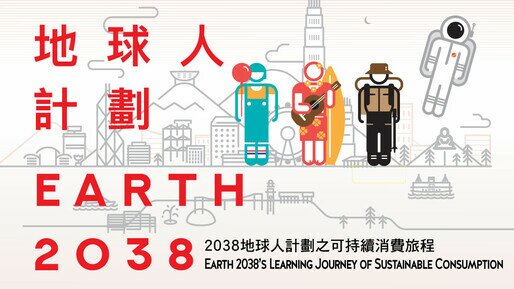
"Earth 2038's Learning Journey of Sustainable Consumption" was piloted across 10 primary schools in October 2017, and the programme was officially launched in the 2018-19 school year. A total of 3,800 students from 31 primary schools participated in the series of experiential learning activities that aimed to heighten awareness of their values and attitudes as responsible consumers.
First Study Report on e-Hailing Services
With the global phenomenon of E-hailing services, the Council published the study report "More Choices Better Service – A Study of the Competition in the Personalised Point-to-Point Car Transport Service Market" in November. The report looked into the public's opinion of taxi services, and recommended the introduction of a parallel regime consisting of both taxi and E-hailing services to strengthen the service quality of market players through increased competition.
World Consumer Rights Day 2018
The year's theme was “Making Digital Marketplaces Fairer” with the focus on raising consumer awareness on cyber security issues, such as the excessive collection of personal data by app developers and internet safety.
Publication of A Report to Advocate Mandatory Cooling-off Period in Hong Kong
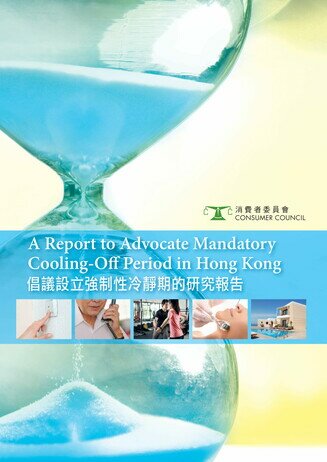
"A Report to Advocate Mandatory Cooling-off Period in Hong Kong" was published in April, which looked into the inadequacies in voluntary cooling-off provisions and made recommendations on the scope of application and operational arrangements of a mandatory cooling-off regime.
Study Report on Overseas Education Advisory Services
A study report titled "Are Students Protected? An In-depth Look Into Overseas Education Advisory Services" was published in June, the first in-depth study of its kind looking into this industry.
Collaboration in Consumer Redress with Japan
The Council and the National Consumer Affairs Center (NCAC) of Japan signed a Memorandum of Understanding (MOU) in June to strengthen the safeguard of the rights and interests of consumers in both territories. This was the Council's second cooperative partnership with its overseas counterpart, following a similar MOU with Korea.
The 500th Issue of CHOICE & Launch of YouTube Channel
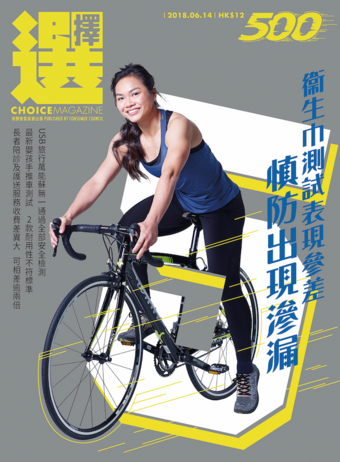
Olympics bronze medalist Ms Sarah Lee Wai Sze graced the cover of the 500th issue of CHOICE in June, her tenacity aptly echoing the determination and effort of CHOICE in protecting consumer rights over the years. A dedicated YouTube channel was launched in the same month, providing consumers with more ways to access the Council's information.
Study Report on Ageing Consumer Rights
"A Study on Building an Age-friendly Consumption Environment" was published in October, focusing on the rights of ageing consumers.
Beauty Group Named and Reprimanded for Malpractice
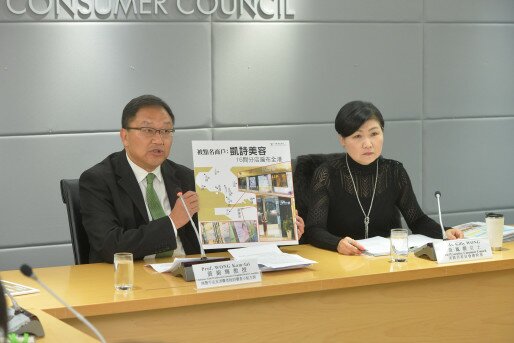
In November, the Council publicly named and reprimanded the beauty service group Pretty Beauty Centre for various undesirable trade practices that resulted in serious financial loss and mental distress to the aggrieved consumers.
2019






The 45th Anniversary of the Consumer Council

The theme of the 45th anniversary was "Uphold the Spirit of Consumer Protection, Embrace the Future of Technology Innovation", which summed up the Council's vision and role as a consumer watchdog. In May, the "Best Consumer Protection Legislation Advertising Award" was held for the first time, inviting secondary school students to produce their own advertising videos to promote consumer rights and protection among the young generation. A total of 50 teams consisting of 158 students from 30 secondary schools enrolled in the competition.
4 Fitness Centres Named for Unscrupulous Sales Practices
4 fitness centres were publicly named and strongly reprimanded for targeting inexperienced young consumers with unscrupulous high-pressure sales tactics to coerce them into signing contracts.
Attending the Consumers International Summit
The Council's Chief Executive attended the Consumers International World Summit, "The Digital Hive: Putting Consumers at the Heart of Digital Innovation", held in Portugal from 30 April to 1 May, during which she delivered speeches on various occasions and played an active role in discussing and advocating issues on digital consumption.
Cross-border Co-operative Agreements with the Greater Bay Area
The Council signed Memoranda of Understanding with 9 mainland municipalities in the Greater Bay Area, further enhancing the cross-border co-operation in consumer protection between Guangdong, Hong Kong and Macau.
Advocating for Money Lenders Ordinance Amendment
The "Money Lending – Reforming Law and Trade Practices for Consumer Protection" study report was published in September, proposing amendments to the Money Lenders Ordinance and establishing a new sector specific regulator.
In-depth Study of Private Health Insurance
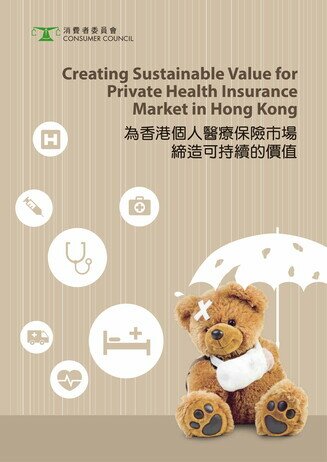
The Council published an in-depth study titled "Creating Sustainable Value for Private Health Insurance Market in Hong Kong" that looked into the gaps between consumer expectations and the actual protection offered by the private health insurance they purchased, as well as the lack of continuity of the private health insurance.
Consumer Education for Senior Citizens
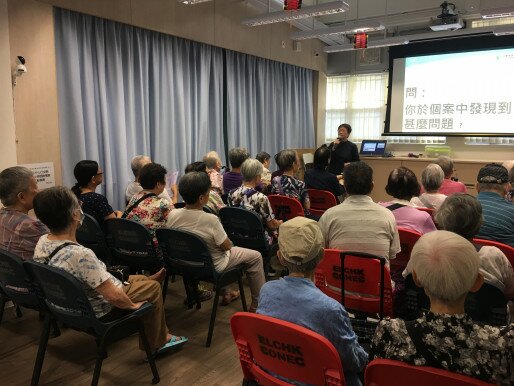
36 community talks for senior citizens were organised in collaboration with social service organisations during the year. The Council also partnered with TVB to produce elderly health management themed segments that were broadcast in the TV programme "Revel in Retirement" (無耆不有).
Launch of Mobile-friendly "Online Price Watch"
A mobile-friendly Online Price Watch mini-site with enhanced functions was launched in July. New features included "Price Drop Products", "Barcode Scanning", etc. The total page view of Online Price Watch reached a record-high of 10.54 million in the year.
The 20th Anniversary of the Consumer Culture Study Award
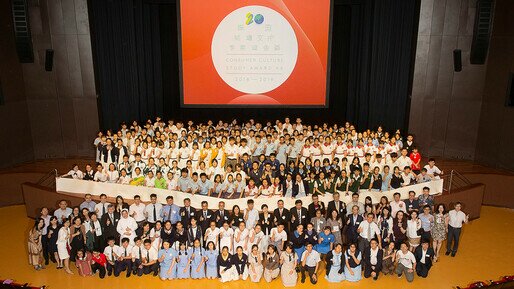
2019 marked the 20th anniversary of the Council's flagship youth education programme, the Consumer Culture Study Award (CCSA), co-organised with the Education Bureau. A celebration and recognition ceremony was held on 2 October and awards were presented to long-standing supporters of CCSA, including adjudicators, participating schools and teachers.
Collaboration on Dispute Resolution with Singapore
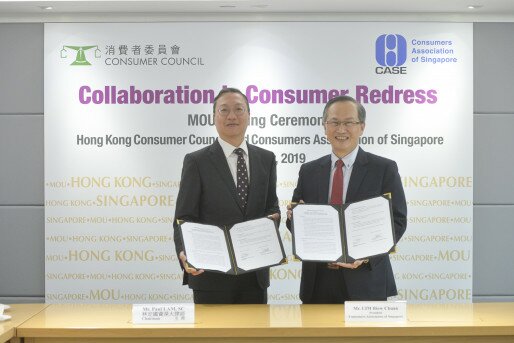
The Council signed a Memorandum of Understanding (MOU) with the Consumers Association of Singapore, covering the consumer disputes encountered by the travellers between the two cities as well as those arising from online shopping. This was the first MOU signed with a consumer body in Southeast Asia.
Live Streaming of Press Conferences
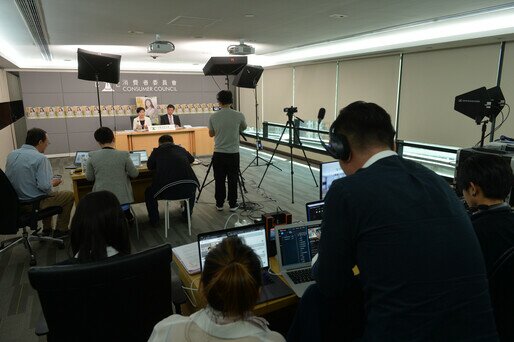
In the midst of the social movement and coronavirus pandemic, the monthly press conferences could not be held in the traditional format. To facilitate dissemination of the latest information to the media and public, the press conferences were live-streamed online starting from November. Media submitted enquiries online while citizens benefitted from viewing the conferences in real time via Facebook.


2020s
Entering the 2020s, Hong Kong was faced with the unprecedented challenge of the global coronavirus pandemic. To safeguard the health and wellbeing of citizens, the Council proactively tested various anti-epidemic products and condemned unfair trade practices in the sales of anti-epidemic supplies. Live broadcast of the monthly press conferences allowed citizens to acquire the latest consumer information comfortably and safely at home. The Council also enhanced consumer education, using creative communication and activities to strengthen positive consumer awareness and the ability for self-protection among different consumer groups, including the elderly and persons with special needs.
2020






Together, We Fight COVID-19
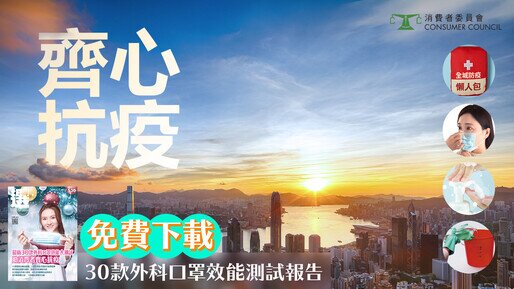
During the pandemic, “Together, We Fight COVID-19”, a one-stop webpage was launched to provide timely and reliable anti-epidemic information for consumers. The Council rigorously conducted tests on various disinfectant and anti-epidemic products including disinfection alcohol, at-home test kits, disinfectant lanyards, and face masks. Test reports were made free for public download on the website.
The Council also jointly developed a DIY solution for consumers to make face masks using common household items when surgical mask supply was scarce.
Face Mask DIY Tutorial Video
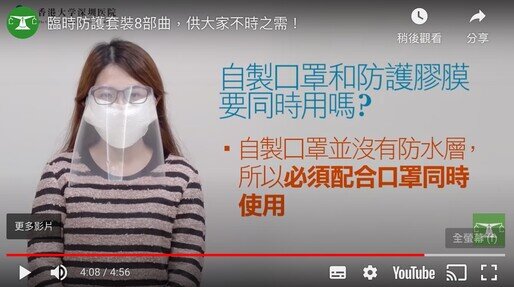
In response to the acute shortage of face masks on the market, a taskforce led by The University of Hong Kong-Shenzhen Hospital and joined by the Consumer Council, the Department of Architecture and Civil Engineering of the City University of Hong Kong, Hong Kong Applied Science and Technology Research Institute, and Hong Kong Science Park, worked together to develop a way to make effective do-it-yourself makeshift face masks using accessible materials at home. The Council produced a video on this DIY mask, which garnered over 180,000 views and was subsequently translated into an English version, attracting viewers from Europe, USA, Japan, etc as well as being covered by overseas media. The Taskforce also advised consumers not to reuse face masks.
World Consumer Rights Day 2020
The theme of World Consumer Rights Day 2020 was "The Sustainable Consumer". The March issue of CHOICE called on both consumers and manufacturers to make good use of resources. A "Sustainable Consumption Challenge" mini-game was launched in the magazine and on the Council's website to encourage the public to put sustainable consumption behaviours into daily practice.
Study Reports on Anti-epidemic Products
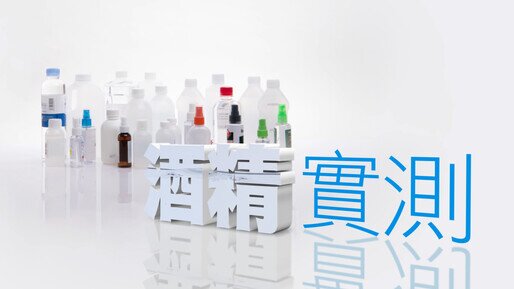
During the coronavirus pandemic, the Council published test reports on disinfectant alcohol and COVID-19 test kits in April, followed by tests on disinfectant cards and badges, and wearable negative ion air purifiers in the months after.
Auto-fuel Price Monitoring
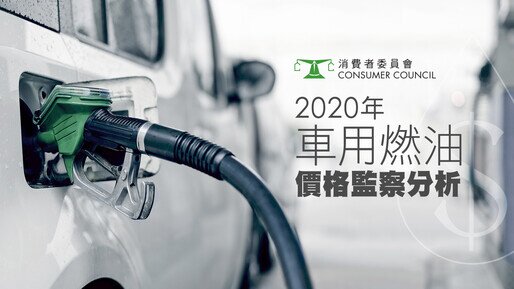
Despite the sharp drop in international crude oil prices in April 2020, the auto-fuel price in Hong Kong remained at a high level.
The Council published the “Auto-fuel Price Monitoring Analysis 2020” study report in May 2020, analysing statistics over a 7-year period. The report revealed a consistent sign of “More Going Up, Less Coming Down” in the pump price as well as a high level of conformity of pump prices amongst oil companies. The Council also urged the Government to once again conduct a thorough regulatory review on the auto-fuel market to formulate a long-term development plan.
21st Consumer Culture Study Award (CCSA)
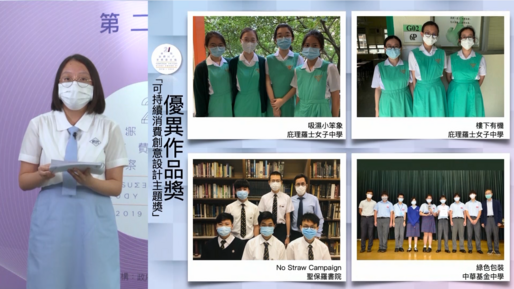
The 21st CCSA — the Council’s annual flagship programme run in collaboration with the Education Bureau — had a total of 770 participating teams from 64 secondary schools.
Contingency measures were implemented to work around pandemic restrictions, including virtual consultation sessions for advising participants on their project ideas, content and methodology. The programme concluded with the first-ever live-streamed Award Presentation Ceremony on 31 October 2020.
Launch of the New “Oil Price Watch”
The brand new “Oil Price Watch” website and mobile app featuring enhanced functions were launched in November 2020 after a year of development, offering a handy and informative platform for consumers to check the auto-fuel retail prices of different oil companies anytime, so as to make smarter choices.
The 20th Consumer Rights Reporting Awards (CRRA)
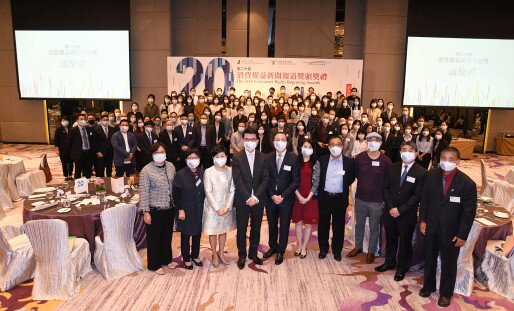
The CRRA celebrated its 20th anniversary in 2020. The presentation ceremony on 3 November 2020 was officiated by the Secretary for Commerce and Economic Development, The Honourable Edward YAU Tang-wah, and the Council Chairman, Mr. Paul LAM Ting-kwok. A total of 40 awards in 7 categories were presented, including “Sustainable Consumption Reporting Awards” and the newly added “20th Anniversary Grand Awards” and “20th Anniversary Honorary Awards”.
Consumer Education for Persons with Special Needs
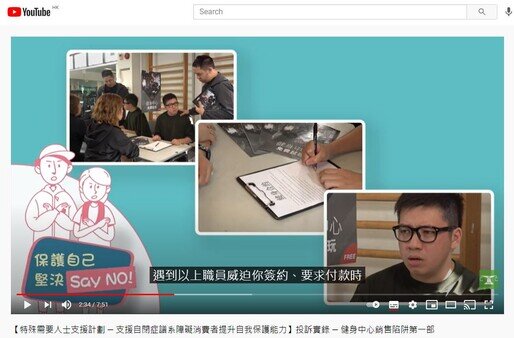
To strengthen the self-protection capacity of the intellectually disabled, the Council launched the brand new “Support Programme for Persons with Special Needs” in November 2020. 3 sets of training kits featuring the unscrupulous sales tactics deployed by fitness and beauty centres were published to help social workers and teachers educate persons with autism spectrum disorder (ASD), mild intellectual disability (ID) and common mental disorder (CMD) on the awareness and prevention of relevant trade malpractices and sales traps.
2021






Top 10 Consumer News – Year of the Rat

The annual Top 10 Consumer News poll concluded in January 2021 with a record-high number of voters. Pandemic-related news dominated the top 10. 2 news stories related to face masks were voted as the “Most Like” and “Most Gratifying”, while the “Most Outrageous” news went to the report on purchase limits imposed by supermarkets.
First-ever Live-streamed Yearender Press Conference
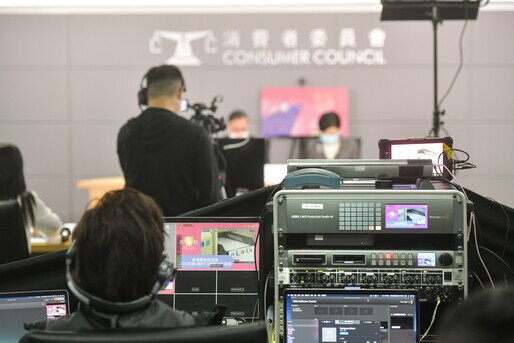
Owing to the pandemic, the Council’s 2020 Yearender event was conducted on 4 February 2021 via a live-stream press conference for the first time in the Council’s history.
“Medical & Health Devices” Shatters Complaint Records
Under the pandemic, complaints related to “Medical & Health Devices” soared from 9th in 2019-20 to the leading category in 2020-21, up more than 400% with 4,116 cases recorded. Amongst this, 97% were related to face masks, a 5.6-time increase compared to the previous fiscal year.
World Consumer Rights Day 2021
The Council took an active role in World Consumer Rights Day 2021 by promoting its theme — “Tackling Plastic Pollution” — through a number of initiatives.
Besides working on a global research study on packaging with 8 other consumer associations, coordinated by Consumers International, the Council also published content in the March 2021 issue of CHOICE Magazine to educate consumers on the “7Rs”, as well as a contribution piece in the South China Morning Post highlighting ways the Government, businesses and the public could tackle plastic pollution.
Sustainable Consumption Tracking Study
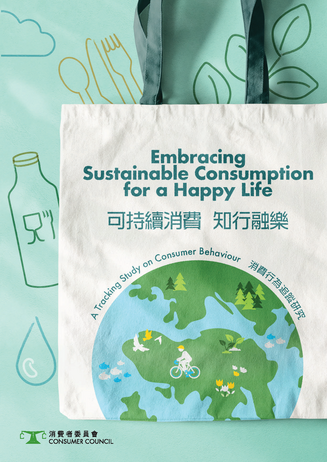
The Council published “Embracing Sustainable Consumption for a Happy Life – A Tracking Study on Consumer Behaviour”, an in-depth study to monitor changes in consumers’ attitude and behaviour towards sustainable consumption (SC) 5 years after its 2016 baseline survey.
Comparison of the 2 major SC Indexes’ scores 5 years apart showed marginal progress, with a gap between consumers’ awareness and actual behaviour, in particular their recycling habits.
In view of the findings, the Council put forward 9 recommendations urging for the tripartite effort by consumers, businesses and the Government to build a sustainable SC culture.
Consumption Voucher Communications Campaign
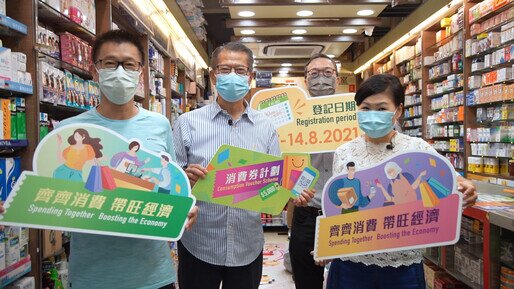
Once the consumption voucher scheme was announced in mid-2021, traders and the designated Stored Value Facilities swiftly rolled out a variety of offers, sparking a city-wide shopping craze.
While supporting the Government’s efforts to revive the battered economy through the scheme, the Council launched an extensive communications campaign to share essential consumption tips and alert the public of potential risk of prepayment transactions and other consumption traps.
Launch of the Consumer Council and eCHOICE Integrated Website

In August, the Council unveiled its newly revamped website integrated with the eCHOICE portal, offering an enhanced and personalised user experience that better caters to the information access habits of consumers.
Apart from a refreshed interface, the new website features an array of new sections and functions closely related to daily life, including free “Shopping Guide” articles to enrich consumer knowledge; a diverse archive of educational videos on shopping advice; “Product Picker” function; as well as optimised online enquiry and complaint services.
Advocating Enhanced Consumer Protection for Purchase of Properties Outside Hong Kong
The Council released the study report “Purchase of Properties Outside Hong Kong – A Study on Enhancing Consumer Protection”, putting forward 5 recommendations covering the licensing of estate agents, information disclosure, content of advertisements, as well as a mandatory cooling-off period, with a view to strengthening the regulation of sales of properties situated outside Hong Kong for the betterment of consumers purchasing non-local properties.
CHOICE 45th Anniversary

The 45th birthday of CHOICE Magazine in 2021 was marked with an exciting series of celebrations, including a birthday party-themed booth at the Hong Kong Book Fair, renowned Olympic gold medallist Guo Jingjing as the cover celebrity of the November issue, a cake-cutting ceremony, as well as a campaign giving away autographed classic CHOICE covers of 12 iconic celebrities and groups which attracted overwhelming response from the public and readers.
2022






Top 10 Consumer News – Year of the Ox
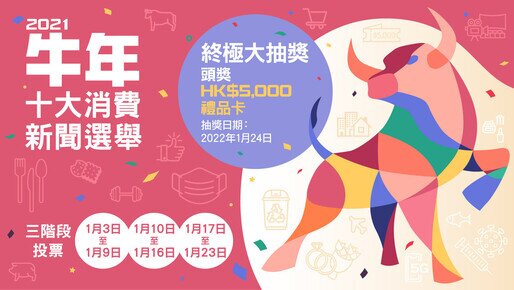
Entering its 18th year, the annual Top 10 Consumer News voting campaign concluded with yet another record-high number of 6,425 voters.
The results reflected consumers’ most pressing concerns of the past year (2021), with the top 3 news stories being the permanent closure of UA Cinema, passage of the waste charging bill, and the demolition and reconstruction of 2 towers of The Pavilia Farm III. 2 news stories related to the Council’s work also made it into the top 10, including the test report on 60 models of pre-packaged biscuits, and complaints relating to consumption vouchers.
A New Era for the Consumer Rights Reporting Awards (CRRA)
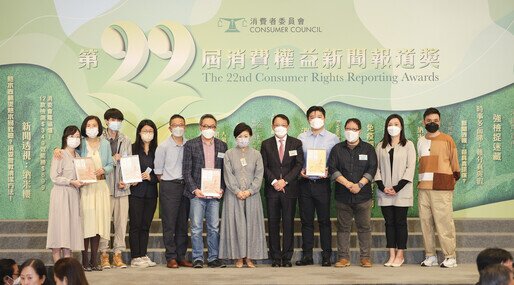
Responding to the rapidly changing media landscape and increasingly diversified information dissemination channels in recent years, the revamped CRRA was launched in 2022 as it entered its 22nd year and attracted a record-breaking 311 entries.
Notable changes and new features included restructured categories with a newly added “Topical Reporting Award”, piloting of the social media category to expand participation, as well as opening up 2 categories for public voting, whereas the cash prize was also doubled.
Strengthening Consumer Protection for the Elderly
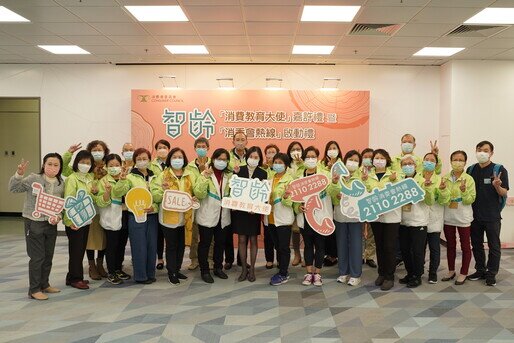
Amidst the global population ageing trend, the Council launched the Pilot Educator Scheme for Senior Citizens (ESSC) and Elderly Hotline in the 2021-22 reporting year, marking a significant milestone in the Council’s mission to promote a fair and age-friendly marketplace while safeguarding elderly consumer rights.
The Pilot ESSC, organised by the Council with 5 partner NGOs, equips the elderly with the right skills to transfer knowledge in consumer rights to fellow senior citizens through community talks and form a strong social support network.
The Elderly Hotline – 2110 2288 – provides a convenient and user-friendly channel for elderly consumers to reach Council staff for enquiries and assistance when consumer issues and disputes arise.
Rapid Antigen Test (RAT) Kits Search Tool
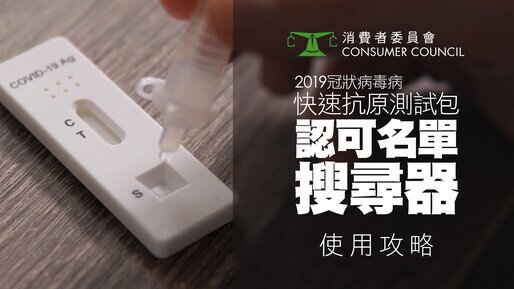
In response to the acute COVID-19 situation in early 2022 and the Government’s recognition of RAT results as early identification of positive cases, the demand for RAT kits and related complaints both surged. The Council swiftly developed and launched a “Search Tool for RAT Kits Approved for Use by Various Regions” within 10 days to help consumers verify and select suitable products amongst the vast selection on the market. The search tool clocked 1 million page views in 11 weeks’ time, an exceptionally high usage rate.
Launch of WeChat Official Account
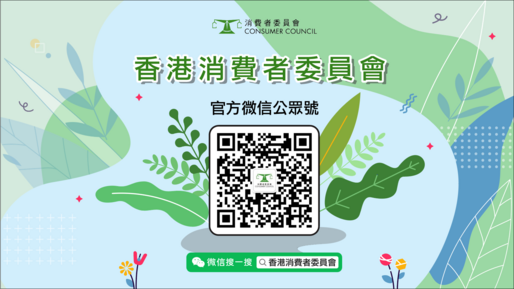
The Council launched its brand new WeChat Official Account in June 2022, a handy “consumption encyclopaedia” for WeChat users in both Hong Kong and the Mainland, offering a wealth of practical information such as shopping guides, articles on hot topics, tips on consumption traps, price comparison tools, as well as complaint status checking and supplementary document submission functions.
Taking Sustainable Action for Hong Kong Book Fair
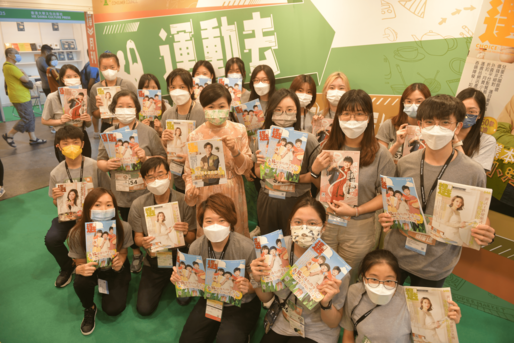
For the first time ever, the Council fully replaced paper forms with e-forms, and introduced 2 new digital payment methods – Octopus and PayMe – at its Hong Kong Book Fair 2022 booth, actualising sustainability and digitalisation efforts. An 85% cashless rate was recorded across all transactions.
First Study on the Use of AI in E-commerce in Hong Kong

Acknowledging the pros and cons of artificial intelligence (AI), the Council published the “Fostering Consumer Trust – Ethical Artificial Intelligence in E-commerce” study report, which identified 6 key areas of concern and put forward 6 recommendations to advocate responsible and ethical AI through the collective effort of the Government, traders and consumers.
Proudly Awarded the Directors of the Year Awards 2022
The Board of the Consumer Council received the prestigious captioned award by the Hong Kong Institute of Directors in November 2022, a profound recognition of the Council’s longstanding commitment to strong corporate governance and dedication to consumer protection.
2023






Virtual Reality Initiative for Consumer Education
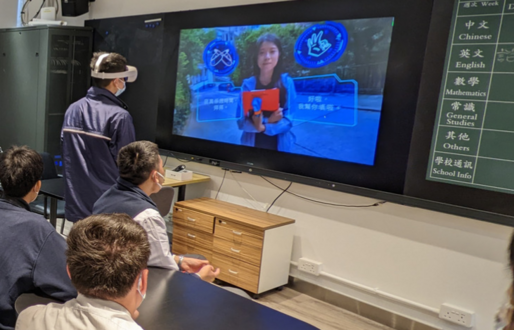
In early 2023, the Council piloted a groundbreaking virtual reality (VR) initiative for its well-received “Support Programme for Persons with Special Needs”, leveraging the immersive technology for role-play simulation of sales malpractices in 2 scenarios – fitness and beauty centres.
Advocating Strengthened Safeguard for a Better Living Environment
During the 2023-24 reporting year, the Council published 2 study reports examining key aspects of residential properties, including property management fees and home renovation, advocating measures to strengthen consumer safeguard while creating comfortable homes.
“Smart Consumption Academy” Takes Baton
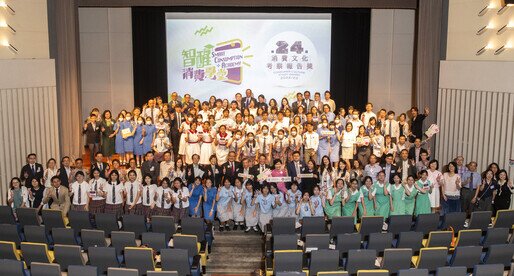
The Consumer Culture Study Award (CCSA) – the Council’s flagship consumer education programme – concludes its 24-year mission in 2023 and is succeeded by the new “Smart Consumption Academy” (SCA), which aims to educate students on 3 key themes – “rational consumption”, “sustainable consumption and green lifestyle”, and “consumption and caring for the community”.
Naming and Shaming Chinese Pharmacies
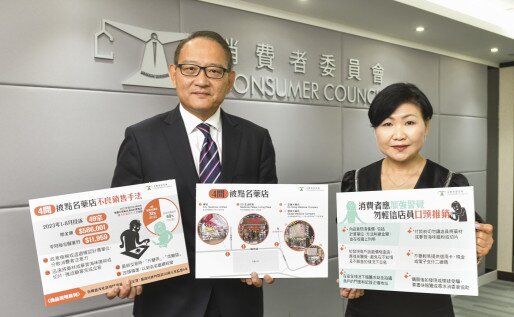
The Council publicly named 4 primely located Chinese pharmacies and strongly reprimanded them for unscrupulous sales practices, involving “catty-to-tael” scams and “ingredient-grinding” strong-arm tactics.
Active Participation in Global Consumer Protection Governance

At the quadrennial Consumers International (CI) Global Congress 2023 held in Kenya, the Council’s Chief Executive was appointed as the Vice President of the Board of Trustees for her third consecutive term, while the Council was re-elected as one of CI’s 22 Council Members and nominated as a Member of the Board of Trustee for a 4-year term from 2023-2027.
2024






Launch of Official Instagram Page
Coinciding with its 50th anniversary, the Council’s long-anticipated official Instagram page was launched in January 2024, connecting with consumers through engaging and bite-sized consumption information.
Half a Century of Consumer Empowerment
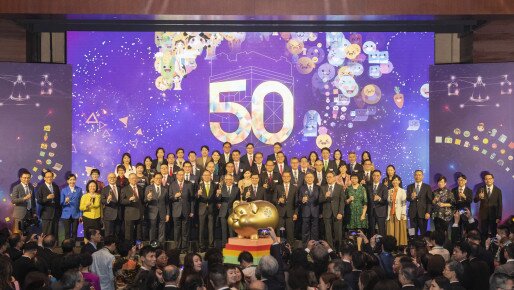
The golden jubilee cocktail reception marked the pinnacle of the Council’s 50th anniversary celebrations. The remarkable ceremony was officiated by the Chief Executive of HKSAR and graced by over 880 prestigious guests
Collaboration in Consumer Redress with Thailand
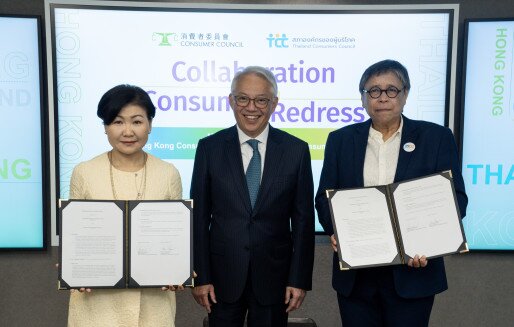
The Council and Thailand Consumers Council signed a Memorandum of Understanding for collaboration on cross-border consumer disputes, establishing an information exchange and complaint referral mechanism to strengthen cooperation in dispute resolution
2025






CHOICE Free for All
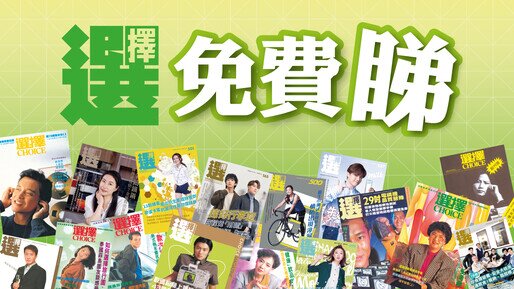
CHOICE became free for public access online starting from 2 January 2025, marking a new era of consumer empowerment and accelerated information transformation
Advocating Transparency in Private Healthcare Pricing
The Council published the “Price Transparency in Healthcare: Fostering Consumer Trust and Value” study, examining consumer pain points and proposing 5 recommendations for enhancing price transparency in the private healthcare sector.
Launch of GBA Smart Guide for Residential Properties
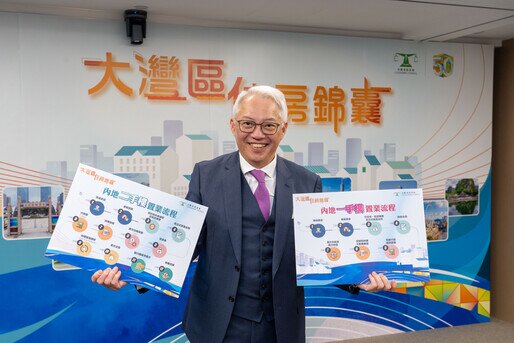
With rising demand of consumers working or living in the Greater Bay Area (GBA), the Council launched a brand new one-stop online platform “GBA Smart Guide (Residential Properties)”, dissecting the intricacies of property purchases and rental in GBA cities, empowering consumers to make informed choices.


